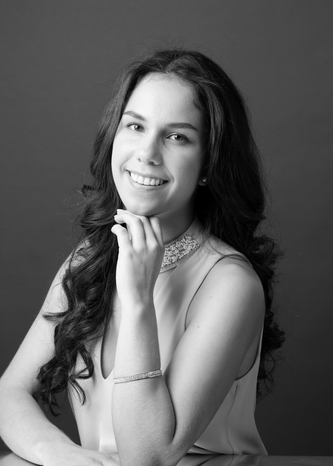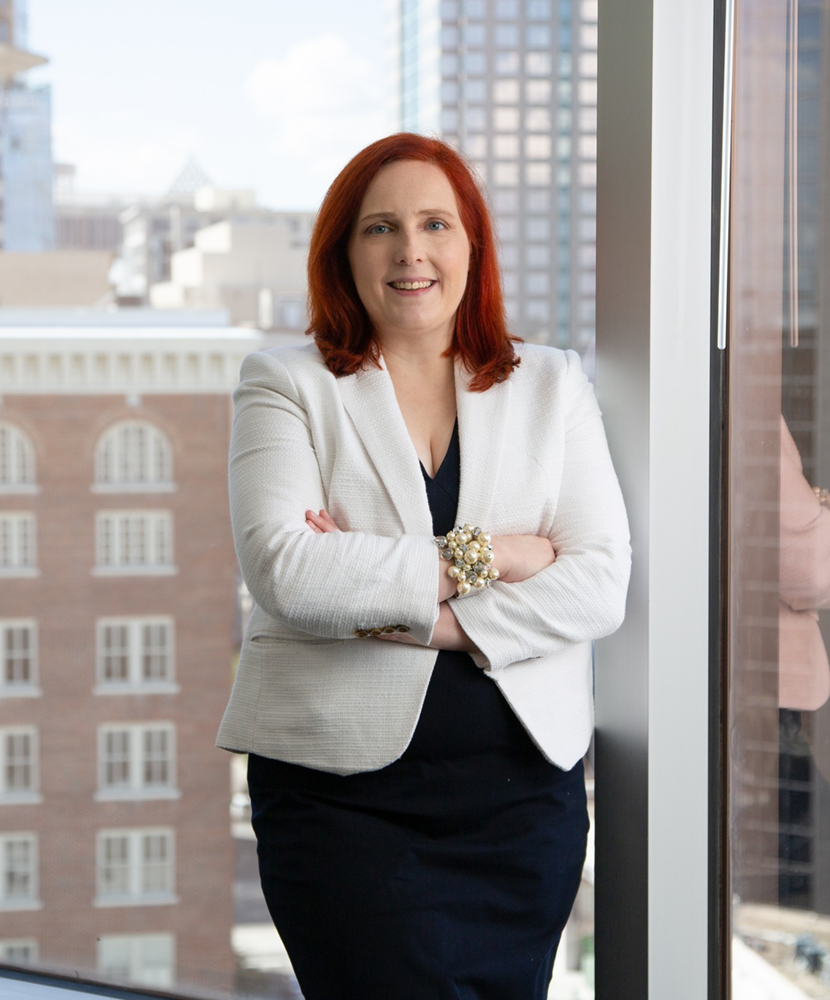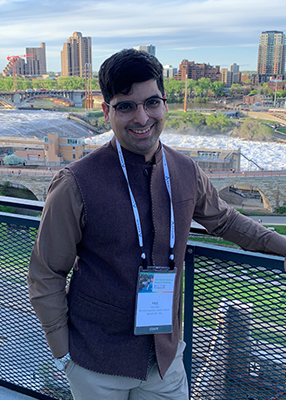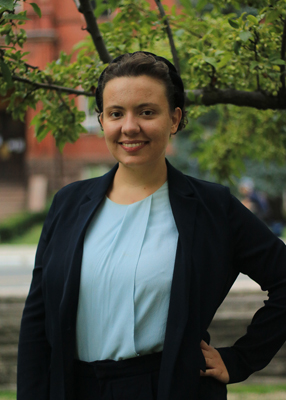Andreas Kuntze

Why did you choose your program at UBC and what did you enjoy most about it?
The history department at UBC offered a diverse selection of courses and instructors. They were challenging and accomplished academics who were motivated to put us on the right track for historical analysis.
What were some of your most meaningful experiences at UBC?
Attending the Medieval Studies symposium, which UBC often sponsored, and small group sessions in upper years.
What choices did you make at UBC that contributed to your career success / journey?
My classmates contributed most to my journey in life and career. They challenged me to think outside the box. I entered UBC revering academics, but sometimes to my detriment. It took some time to become acclimated to the idea that even academics sometimes had their own agendas which were not always obvious.
The history department allowed me to follow my own path, even when the advisors thought I was crazy for skipping a year in classical Latin.
I also took as few of the lighter courses as possible. Sometimes this resulted in more work than I should have taken on, but the number of papers I wrote and the materials I had to read have pointed me in directions in life that I would not have taken otherwise.
What was your first job after graduation and what other jobs did you have before your current position?
My first job after graduation was in a record store in Vancouver. It was a typical post grad job, but it was a great learning experience and I did not resent one minute of it. The record shop finally closed down this year.
After law school, I worked for the Department of Indian Affairs (INAC) as a historical researcher in their Residential School Resolution Department. This had to do with a class action law suit settlement against the federal government.
Is your current career path as you originally intended? What challenges did you face in launching your career?
I wanted to be a lawyer since I was 10 years old.
My path to that career was perhaps not typical, and I was an older student when I entered law school at age 27.
During my studies at UBC, I had thoughts of becoming an academic instead, but it was clear to me that the demographics at that time were just not in my favour, as at the time even people from Ivy League schools in the US struggled to find tenure positions.
So law school beckoned, and I have not regretted the decision.
What do you like about your current job and what do you find challenging? How does it relate to your degree?
I love to help people, particularly those who cannot find their way through a foreign or complex system.
I still see everything and every person in historical context. I believe I have a deeper understanding of people through my training from historians. The rigour and complexity of cultures is something that I learned to appreciate during my time studying social history at UBC.
From your experience, what has been the value of having an Arts degree?
I arrived at UBC with strong logic skills, but my Arts degree gave me a breadth of exposure to cultural and social norms that allowed me to become more analytical.
The syllabus for an upper year history course, with suggested readings, was not just a plan of study, it was a syllabus for the rest of my life. My only regret is that I have not yet been able to get through all those materials.
Are there any other achievements or activities you would like to highlight?
I now run my own small law firm, with five lawyers. It is very rewarding work, and it still challenges me every day on every level.
My hobby comes out of left field for some – karate. I have practiced this martial art since I was 11 years old. I ran the AMS Karate Club in the Student Union Building for a few years. After graduation, I became a national level competitor (when I did not have to use reading week to catch up on my reading). Now I am retired from competition, of course, and work on various levels for our sport:
1. I am currently the President of Karate BC, the Provincial Sport Organization;
2. I am on the officials’ committee for Karate Canada; and,
3. I hold a world level Judge’s license with the World Karate Federation (WKF).
I am in the airport as I write this, on my way to a world level competition in Morocco!
What advice would you give to students and alumni interested in breaking into your industry?
Follow your own path, but hurry up and get on that path! Don’t let anyone dissuade you if you feel it is your calling to become a lawyer.
Don’t be daunted by the number of hoops you have to jump through – just do one at a time. With four years under your belt at UBC you are already through the first hoop.
The hours required during your studies are challenging, but the hours after your call date can be horrendous. After law school, the learning curve can be very steep, depending on the area of your practice. It is not an easy path, so you have to be committed going in.
What advice would you give your graduating self?
I repeat: Follow your own path, but hurry up and get on that path!
I took too long to go back to school, and then was too complacent about getting an articling position.
Andreas Kuntze



Why did you choose your program at UBC and what did you enjoy most about it?
The history department at UBC offered a diverse selection of courses and instructors. They were challenging and accomplished academics who were motivated to put us on the right track for historical analysis.
What were some of your most meaningful experiences at UBC?
Attending the Medieval Studies symposium, which UBC often sponsored, and small group sessions in upper years.
What choices did you make at UBC that contributed to your career success / journey?
My classmates contributed most to my journey in life and career. They challenged me to think outside the box. I entered UBC revering academics, but sometimes to my detriment. It took some time to become acclimated to the idea that even academics sometimes had their own agendas which were not always obvious.
The history department allowed me to follow my own path, even when the advisors thought I was crazy for skipping a year in classical Latin.
I also took as few of the lighter courses as possible. Sometimes this resulted in more work than I should have taken on, but the number of papers I wrote and the materials I had to read have pointed me in directions in life that I would not have taken otherwise.
What was your first job after graduation and what other jobs did you have before your current position?
My first job after graduation was in a record store in Vancouver. It was a typical post grad job, but it was a great learning experience and I did not resent one minute of it. The record shop finally closed down this year.
After law school, I worked for the Department of Indian Affairs (INAC) as a historical researcher in their Residential School Resolution Department. This had to do with a class action law suit settlement against the federal government.
Is your current career path as you originally intended? What challenges did you face in launching your career?
I wanted to be a lawyer since I was 10 years old.
My path to that career was perhaps not typical, and I was an older student when I entered law school at age 27.
During my studies at UBC, I had thoughts of becoming an academic instead, but it was clear to me that the demographics at that time were just not in my favour, as at the time even people from Ivy League schools in the US struggled to find tenure positions.
So law school beckoned, and I have not regretted the decision.
What do you like about your current job and what do you find challenging? How does it relate to your degree?
I love to help people, particularly those who cannot find their way through a foreign or complex system.
I still see everything and every person in historical context. I believe I have a deeper understanding of people through my training from historians. The rigour and complexity of cultures is something that I learned to appreciate during my time studying social history at UBC.
From your experience, what has been the value of having an Arts degree?
I arrived at UBC with strong logic skills, but my Arts degree gave me a breadth of exposure to cultural and social norms that allowed me to become more analytical.
The syllabus for an upper year history course, with suggested readings, was not just a plan of study, it was a syllabus for the rest of my life. My only regret is that I have not yet been able to get through all those materials.
Are there any other achievements or activities you would like to highlight?
I now run my own small law firm, with five lawyers. It is very rewarding work, and it still challenges me every day on every level.
My hobby comes out of left field for some – karate. I have practiced this martial art since I was 11 years old. I ran the AMS Karate Club in the Student Union Building for a few years. After graduation, I became a national level competitor (when I did not have to use reading week to catch up on my reading). Now I am retired from competition, of course, and work on various levels for our sport:
1. I am currently the President of Karate BC, the Provincial Sport Organization;
2. I am on the officials’ committee for Karate Canada; and,
3. I hold a world level Judge’s license with the World Karate Federation (WKF).
I am in the airport as I write this, on my way to a world level competition in Morocco!
What advice would you give to students and alumni interested in breaking into your industry?
Follow your own path, but hurry up and get on that path! Don’t let anyone dissuade you if you feel it is your calling to become a lawyer.
Don’t be daunted by the number of hoops you have to jump through – just do one at a time. With four years under your belt at UBC you are already through the first hoop.
The hours required during your studies are challenging, but the hours after your call date can be horrendous. After law school, the learning curve can be very steep, depending on the area of your practice. It is not an easy path, so you have to be committed going in.
What advice would you give your graduating self?
I repeat: Follow your own path, but hurry up and get on that path!
I took too long to go back to school, and then was too complacent about getting an articling position.



